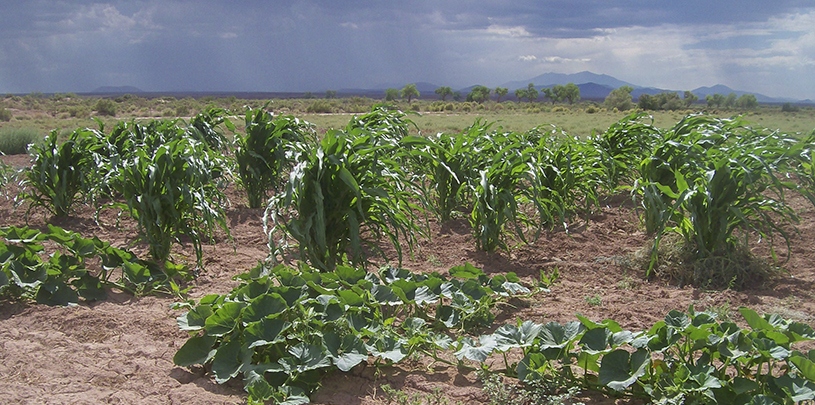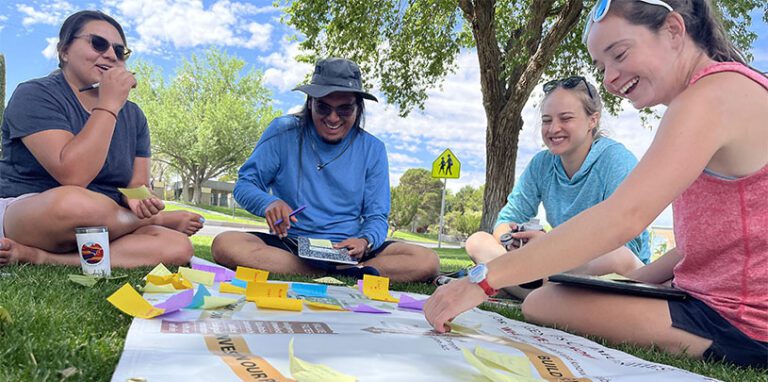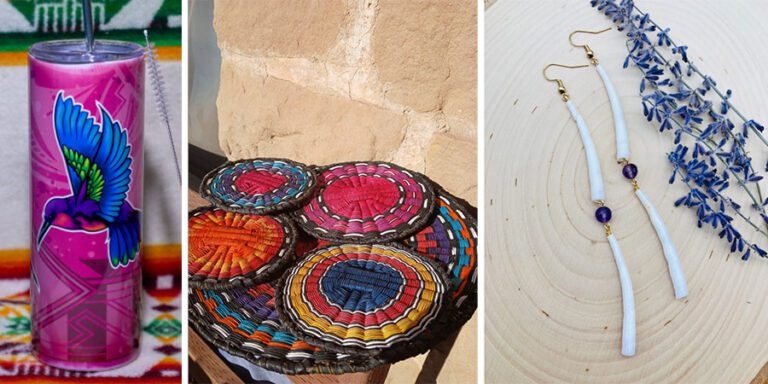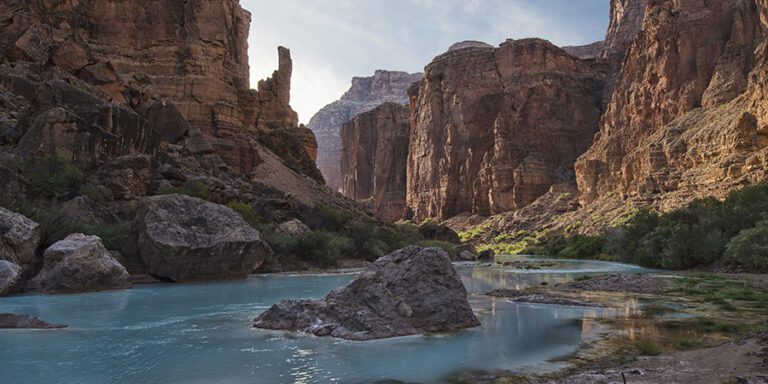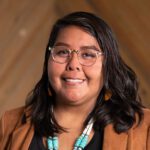
An interview with Navajo farmer Ronalda Thomas about traditional farming and cultural connections to farming and food.
Water is a scarce and sacred resource on the Navajo Nation. It is the lifeline for many farmers who pray for rain and start irrigating their fields in early spring. As tourists drive through the Navajo Nation right now, magic is happening in the fields. Navajo elders speak of holy beings, who bring gentle female rains. The wind spirits cool the farmers as they shovel endless amounts of weeds. And in those hot Kerley Valley fields, local elders share their knowledge with young farmers.
This is the second of a three-part blog series, highlighting the voices of three different generations of Navajo farmers and what each generation can learn from each other. Read part one ›
Meet Ronalda Thomas, food literacy intern at Tolani Lake Enterprises
Ronalda began farming with her mother and grandmother in Shonto, Arizona and went on to volunteer at North Leupp Family Farms. She recently joined Tolani Lake Enterprises full-time as the food literacy intern, promoting locally grown herbs and vegetables at community workshops.
How has farming shaped your identity?
I grew up in Shonto, Arizona and I learned to farm from my grandmother. Her, my mother, and I used to plant near the wash. I began working at Tolani Lake Enterprises, and I realized that it’s very rural and that no one really farms anymore. Since I have worked there, I have learned new techniques, I’ve gotten stronger, and I understand what I am capable of. Farming has brought clarity into many other parts of my life. It teaches me every day to be calm, to become a better farmer, and to be a better person.
In what ways has volunteering with the Tuba City project influenced you and your future as a farmer?
We need to come together as a community and as a people. Young farmers are strong, and they move quickly. So it is important that young people help those in need and those who carry on farming techniques.
What can we learn about farming from our elders?
We can learn so much. When our elders were growing up, they could only rely on themselves and what they could grow. Many elders have their own techniques and they tie it into ceremony. They understand how farming connects us to ceremony and that is why we need to learn from them.
What can we learn about farming from our youth?
Each person has their own experiences and has learned different techniques from their families. So if we being their creativity then we can go forward with new ideas and new methods of farming.
Why do you feel it’s important for young Indigenous people to revitalize farming practices?
It will teach them about protecting the Earth. Also, they will understand that they don’t have to rely on big grocery stores. With all the hard work that goes into farming, young people will be able to connect with the earth and who they are as an Indigenous person. It is important that they pass on these teachings to others, their children, and their relatives. Farming identifies us as Indigenous people. No matter which tribe we come from, farming is a part of our lives.
What would you say to a young person who is interested in farming but doesn’t know where to start?
Find people who know how to farm. There are connections that need to be made, and that is how you can find people who need help. People are always open to volunteers, and everyone will benefit. Ask a lot of questions. Farmers are willing to share as much as they can.
Is there anything else you want to say?
Learn and get all the knowledge that you can from elders. Ask questions.

